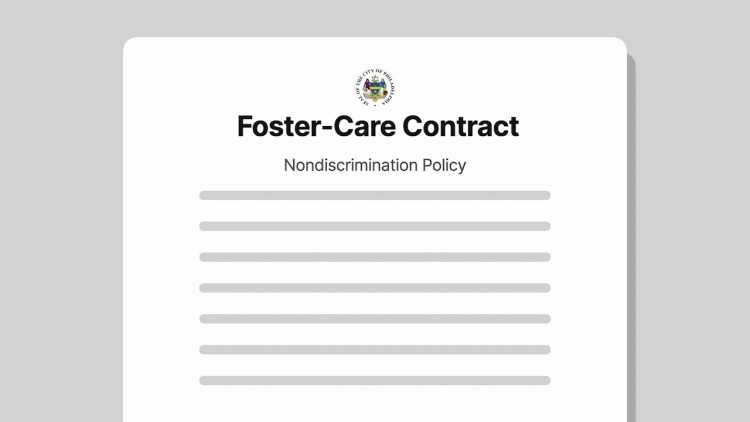Fulton v. City of Philadelphia
United States Supreme Court
593 U.S. 522, 141 S. Ct. 1868, 210 L. Ed. 2d 137 (2021)
- Written by Haley Gintis, JD
Facts
The City of Philadelphia (city) (defendant) contracted with Catholic Social Services (CSS) (plaintiff) to secure and certify foster families for children in the foster system. After working with CSS for 50 years, the city adopted a nondiscrimination policy and informed CSS that it would no longer work with CSS because of CSS’s refusal to certify same-sex couples and nonmarried couples as foster parents. The nondiscrimination policy provided that an agency could not reject a prospective foster family based on sexual orientation unless the city’s commissioner granted an exception. The commissioner had full discretion in determining whether to grant an exception. In response to the city’s policy, CSS and foster-care parents certified by CSS (plaintiffs) filed an action against the city in federal district court. They argued that the policy violated CSS’s free-exercise and free-speech rights guaranteed in the First Amendment to the United States Constitution. The city argued that it had a compelling interest in adopting the policy on the ground that the policy would increase the number of available foster-care parents, protect the city from liability for acting in a discriminatory way, and promote equality. The city also argued that the discretionary exception in the policy had never been utilized. The district court returned a verdict in favor of the city. CSS and the foster-care parents appealed. The circuit court affirmed. The matter was appealed to the United States Supreme Court.
Rule of Law
Issue
Holding and Reasoning (Roberts, C.J.)
Concurrence (Gorsuch, J.)
Concurrence (Alito, J.)
Concurrence (Barrett, J.)
What to do next…
Here's why 904,000 law students have relied on our case briefs:
- Written by law professors and practitioners, not other law students. 47,100 briefs, keyed to 995 casebooks. Top-notch customer support.
- The right amount of information, includes the facts, issues, rule of law, holding and reasoning, and any concurrences and dissents.
- Access in your classes, works on your mobile and tablet. Massive library of related video lessons and high quality multiple-choice questions.
- Easy to use, uniform format for every case brief. Written in plain English, not in legalese. Our briefs summarize and simplify; they don’t just repeat the court’s language.





